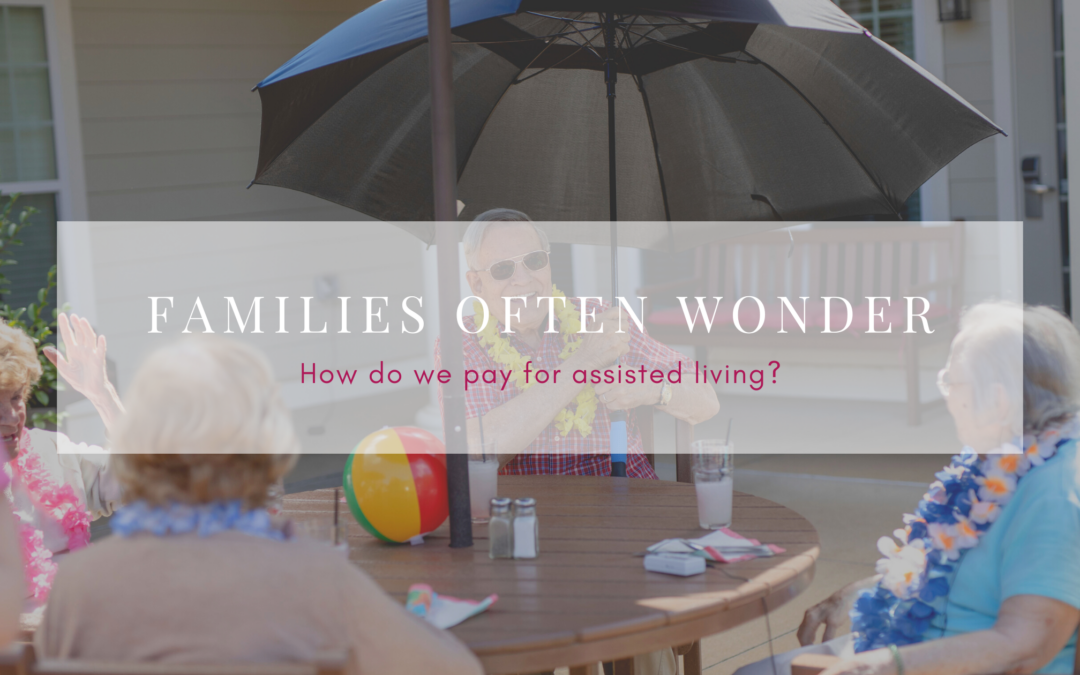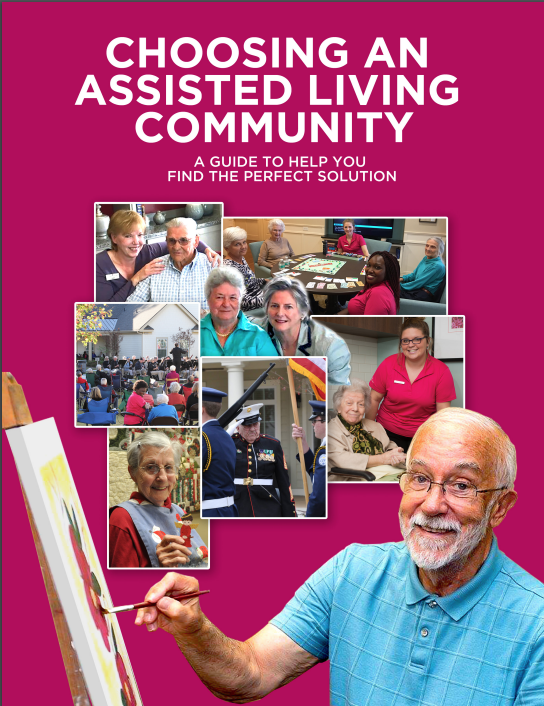At Camellia Place, we understand that the decision to move into an assisted living community can be both emotional and financial. Our community liaison is here to help navigate the financial aspects of this transition and explore the available options for paying for assisted living.
Personal savings and retirement funds:
One of the most straightforward options for covering assisted living costs is using personal savings and retirement funds. These funds may come from your loved one’s savings accounts, investments, or retirement plans like a 401(k) or IRA. Before using these funds, consult a financial advisor to understand potential tax implications or penalties.
Long-Term Care Insurance:
Long-term care insurance is designed to help cover long-term care costs, including assisted living. This type of insurance policy can provide a predetermined monthly benefit to help pay for care. It’s important to note that these policies must be purchased before your loved one needs assisted living services, and the premiums may be higher for older adults. If your loved one already has long-term care insurance, review the policy details to understand the coverage and benefits.
Life Insurance:
Life insurance can be a valuable resource for seniors who need funds for assisted living. There are a few options available with Life Insurance. Depending on the policy, it may offer options for accelerated death benefits, allowing policyholders to access a portion of their death benefit while still alive. Additionally, some policies may allow for the sale of the policy for a lump sum payment or offer long-term care benefits that can be used to cover assisted living costs. It’s always a good idea to review your policy and speak with your insurance provider to understand your options.
Home or Property:
If your loved one owns their home, they may be able to use their home equity to pay for assisted living. There are a few ways to tap into this equity, such as selling the home, renting it out, or taking out a home equity loan or reverse mortgage. Each option has advantages and disadvantages, and decisions should be made with the help of a financial expert.
- Home Equity: Using home equity to cover assisted living costs can offer several advantages. You can tap into the equity built up in the home, providing a source of funds to cover the costs of assisted living. Often it provides a lower interest rate than other types of loans, helping to minimize the overall cost of financing, and it can help maintain ownership of the home to pass it on to heirs in the future. Using home equity can be a smart and practical option if you’re looking for ways to finance assisted living.
- Selling A Home or Property: If you or someone you love is considering assisted living, selling a home or other properties can offer several advantages. It can provide the necessary funds to cover the cost of assisted living, help alleviate the burden of home maintenance, and provide a sense of security and peace of mind, knowing there are financial resources to support future needs. Selling a home could be a wise choice to help you or your loved one live a comfortable and fulfilling life.
- Renting A Home or Property: Renting can provide a steady income stream to help cover assisted living costs. It can offer flexibility and help maintain ownership. If you’re exploring options to finance assisted living, renting a home may be a practical and beneficial choice.
- Reverse Mortgage: A reverse mortgage is a type of loan that allows seniors to access the equity in their home without selling it. Instead of making monthly mortgage payments, the loan is paid back when the borrower sells the home, moves out, or passes away. A reverse mortgage can benefit those who may not have enough retirement savings or income to cover the expenses of assisted living.
 Medicare and Medicaid are limited in Georgia; however, we can help you with available options. Navigating the financial options for assisted living can be challenging, but you don’t have to do it alone. Our community liaison at Camellia Place is here to help you and your family explore these options and make the best decision for your loved one. With the right financial plan, your loved one can enjoy a fulfilling life at Camellia Place, fostering friendships and participating in wellness activities promoting independence and well-being.
Medicare and Medicaid are limited in Georgia; however, we can help you with available options. Navigating the financial options for assisted living can be challenging, but you don’t have to do it alone. Our community liaison at Camellia Place is here to help you and your family explore these options and make the best decision for your loved one. With the right financial plan, your loved one can enjoy a fulfilling life at Camellia Place, fostering friendships and participating in wellness activities promoting independence and well-being.



